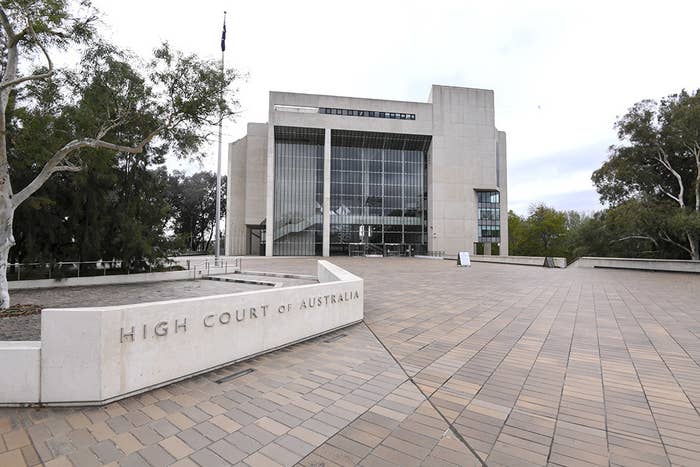
A man who has spent over nine years in immigration detention in Australia has had his legal challenge dismissed on the spot in a dramatic hearing in the High Court.
A unanimous bench decided that the peculiar facts of the man's case and the mystery of his true identity meant that the constitutional questions he tried to raise about his detention did not arise.
The man, known as Plaintiff M47, says he is stateless and does not know where he was born. The Australian government has not been able to identify him since he arrived in Australia from Norway in Jan. 2010, but argues that he has withheld vital information and told inconsistent stories about his past.
With no verified identity, no country to send him to, and no valid visa, the government has kept him in various detention centres since 2010.
His case referred to the controversial 2004 decision of Al-Kateb, in which the court found that the indefinite detention of a stateless man was lawful, even though there was no real prospect of him being deported in the foreseeable future.
His submissions raised the possibility that the case could be overturned, and the system of indefinite detention dismantled.
Accompanied by two security guards, Plaintiff M47 sat in the front row of the public gallery on Wednesday watching on, surrounded by supporters including former detainees.
But before his senior counsel, Ron Merkel QC, could get to the constitutional issues the court raised a series of questions about the facts of the case.
The plaintiff had argued that the reason his detention was unlawful was that there was no real prospect or likelihood that he would be removed from Australia during his natural life, or within the reasonably foreseeable future.
But the judges questioned whether that was really the case, and whether the plaintiff himself might have information that could lead to his identification and removal.
Chief Justice Susan Kiefel told Merkel that what "clearly sets this case apart" from other indefinite detention cases was that the plaintiff had volunteered various conflicting accounts of his own past.
The bench of seven judges pressed Merkel on whether the man was to blame for his own situation, because he had not fully cooperated with the government's attempts to identify him.
In interviews with the Algerian and Moroccan embassies the man had refused to speak Arabic, to assist them in figuring out where he came from.
"Well, why ... if he's got nothing to hide?" asked Justice Geoffrey Nettle.
"Does he have the keys [to his release] in his pocket?" added Justice Michelle Gordon.
Solicitor-general Stephen Donaghue, who represented the government, argued that the problem ran "much deeper" than the man's failure to speak Arabic in the interviews.
"We have a plaintiff...who has given completely different accounts over a long period of time," he said. Donaghue said that in previous interviews, Plaintiff M47 had mentioned still being in contact with his mother and a brother. Yet he had also said he didn't know their names.
Donaghue argued there was a "strong foundation" to thinking the man was withholding information that, if revealed, would mean he could be sent to Algeria.
Merkel admitted that his client had told inconsistent stories in the past. But he insisted that there was no reason to think that new "objective, verifiable facts" about his history could come to light.
It was only a few minutes after the hearing concluded that the judges returned to the bench to dismiss the case unanimously. The questions the plaintiff had tried to raise about whether the Migration Act authorised his detention, and whether it was constitutional (including whether Al-Kateb should be re-opened) did not arise, they decided.
The judges' questioning about the man's failure to cooperate led to an unusually stop-start morning, and it seemed for a while that the hearing would be over before it really began. In a last-minute bid to address the judges' concerns, the plaintiff applied to adjourn so that he could re-do the embassy interviews speaking Arabic, as well as complying with the government's other requests, but his application was denied.
The court then cautioned that if he kept going with the hearing, lost, and later tried to challenge his detention – perhaps after volunteering more information – he might be legally stopped from doing so, because the matter would have already been decided.
For several hours, his lawyers tried to persuade him that they should walk away from the hearing and go back to a directions hearing before a single judge to avoid this problem.
However, they were unsuccessful and the hearing proceeded.
Chief Justice Kiefel said the court would publish its reasons at a later date.
